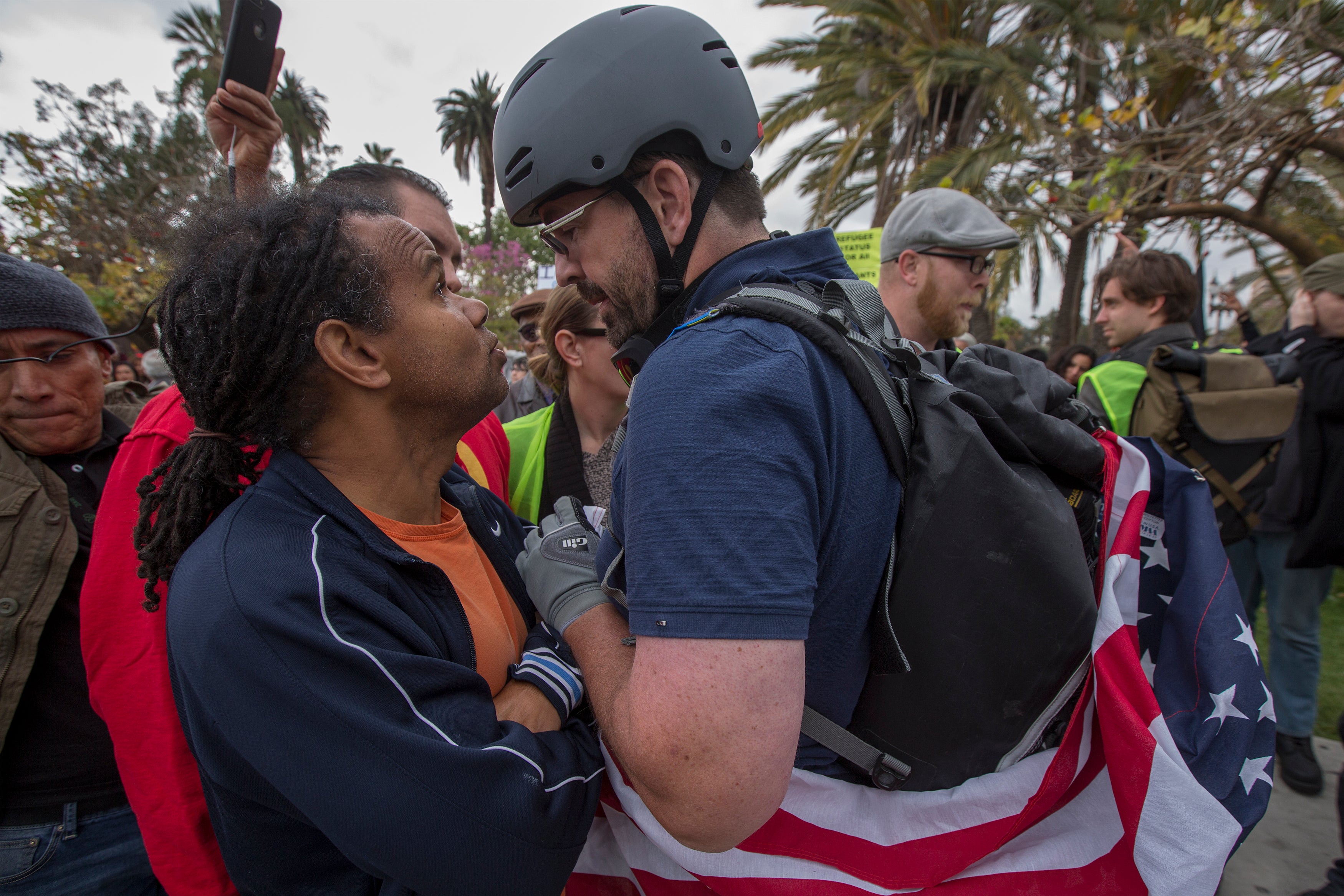ARTICLE AD BOX
The number of white nationalist, hate, and anti-government groups in the U.S. declined slightly in 2024, not because their influence is fading.
Many believe that racist ideologies and narratives of Christian persecution are becoming more accepted in government and mainstream conversations - allowing their voice to grow while the number of groups shrinks.
The Southern Poverty Law Center reported a 5 percent decrease in hate and extremist groups in its annual “Year in Hate and Extremism” report released Thursday.
The nonprofit organization attributes the decline to a reduced need for formal organization, as hateful beliefs have increasingly permeated politics, education, and general society. According to the report, the influence is evident in efforts to ban diversity, equity, and inclusion programs, restrict books and protest drag story hours.
“After years of courting politicians and chasing power, hard-right groups are now fully infiltrating our politics andenactingtheir dangerous ideology into law,” said Margaret Huang, president and CEO of the SPLC. “Extremists at all levels of government are using cruelty, chaos and constant attacks on communities and our democracy to make us feel powerless. We cannot surrender to fear. It is up to all of us to organize against the forces of hate and tyranny. This report offers data that is essential to understanding the landscape of hate and helping communities fight for the multiracial, inclusive democracy we deserve.”
.jpg)
In 2024, there were 533 active hate groups, including those promoting anti-LGBTQ+, anti-immigrant, antisemitic and anti-Muslim views. This figure has been gradually decreasing since peaking at a record high of 1,021 in 2018, according to the report.
"The trends have slightly sort of gone up and down but let's just say generally, since our tracking, have increased. And that's not just on a total numbers level but also on a per capita," said Rachel Carroll Rivas, interim director of the SPLC's Intelligence Project.
According to the Montgomery, Alabama-based Southern Poverty Law Center, the number of anti-government groups increased to 838 in 2024. These groups, which include militias and self-identified sovereign citizens, often view the federal government as "tyrannical."
The SPLC also noted a growing presence of male supremacist hate groups, documenting seven new ones in 2024 for a total of 16. These groups promote misogynistic views and rigid gender roles.
Their increased visibility happened in a historic election year with Democratic nominee Kamala Harris becoming the first woman of color nominated for president by a major political party.

While not directly attributing it to Harris’s candidacy, SPLC researchers found “intense vilification” of her in white supremacist chat rooms, along with claims that women are unqualified for leadership.
Additionally, some far-right groups promote the belief that white Christian culture is under threat due to a so-called "demographic crisis," including declining birth rates.
"Politicians, pundits and provocateurs on the right have turned toward demonic language to tar those who disagree with them," the report states.
Last year’s report found record levels of white nationalist and anti-LGBTQ groups in 2023. It detailed how far-right organizations sought to undermine democracy through disinformation, conspiracy theories, and threats against election workers.
The report also highlighted how advocates of Christian supremacy used these issues to rally support for authoritarian goals.
The SPLC is a liberal advocacy group that tracks hate groups, files justice-related lawsuits, and runs educational programs to combat prejudice. It has faced criticism from conservatives and legal challenges over its classification of certain organizations as hate groups.









 English (US) ·
English (US) ·